VW Golf vs Dacia Bigster – Which car suits you better?
Both models have their strengths – but which one suits you more?
Compare performance, efficiency, price and space directly: VW Golf or Dacia Bigster?
Costs and Efficiency:
When it comes to price and running costs, the biggest differences usually appear. This is often where you see which car fits your budget better in the long run.
Dacia Bigster has a evident advantage in terms of price – it starts at 20600 £, while the VW Golf costs 25200 £. That’s a price difference of around 4633 £.
Fuel consumption also shows a difference: VW Golf manages with 0.30 L and is therefore significantly more efficient than the Dacia Bigster with 4.70 L. The difference is about 4.40 L per 100 km.
Engine and Performance:
Power, torque and acceleration are the classic benchmarks for car enthusiasts – and here, some clear differences start to show.
When it comes to engine power, the VW Golf has a decisively edge – offering 333 HP compared to 155 HP. That’s roughly 178 HP more horsepower.
In acceleration from 0 to 100 km/h, the VW Golf is clearly quicker – completing the sprint in 4.60 s, while the Dacia Bigster takes 9.70 s. That’s about 5.10 s faster.
In terms of top speed, the VW Golf performs distinct better – reaching 270 km/h, while the Dacia Bigster tops out at 180 km/h. The difference is around 90 km/h.
There’s also a difference in torque: VW Golf pulls decisively stronger with 420 Nm compared to 230 Nm. That’s about 190 Nm difference.
Space and Everyday Use:
Whether family car or daily driver – which one offers more room, flexibility and comfort?
Both vehicles offer seating for 5 people.
In curb weight, VW Golf is hardly perceptible lighter – 1307 kg compared to 1425 kg. The difference is around 118 kg.
In terms of boot space, the Dacia Bigster offers significantly more room – 667 L compared to 381 L. That’s a difference of about 286 L.
In maximum load capacity, the Dacia Bigster performs evident better – up to 1937 L, which is about 700 L more than the VW Golf.
When it comes to payload, VW Golf minimal takes the win – 508 kg compared to 467 kg. That’s a difference of about 41 kg.
Who comes out on top?
Overall, the VW Golf shows itself to be dominates this comparison and secures the title of DriveDuel Champion.
It convinces with the more balanced overall package and proves to be the more versatile choice for everyday use.
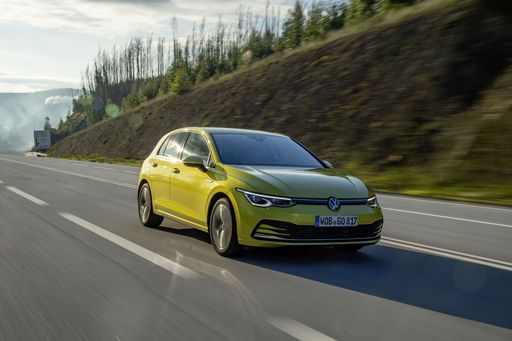
VW Golf
VW Golf
Der VW Golf überzeugt seit Jahrzehnten durch seine Vielseitigkeit und seine ausgewogene Mischung aus Komfort und Dynamik. Mit seinem zeitlosen Design und der hochwertigen Verarbeitung ist er ein treuer Begleiter im Alltag. Besonders beliebt ist der Golf wegen seiner innovativen Technologie und der großen Auswahl an Varianten, die für jeden Bedarf das passende Modell bietet.
details @ Volkswagen
@ Volkswagen
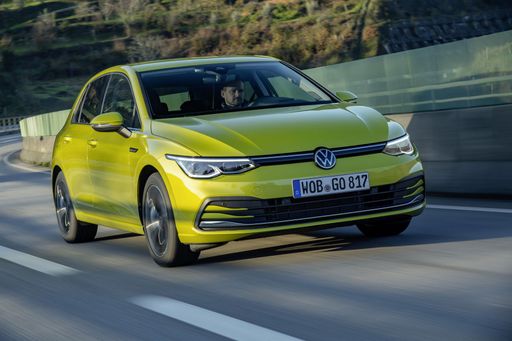 @ Volkswagen
@ Volkswagen
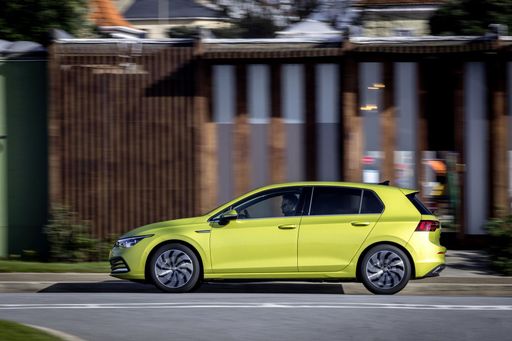 @ Volkswagen
@ Volkswagen
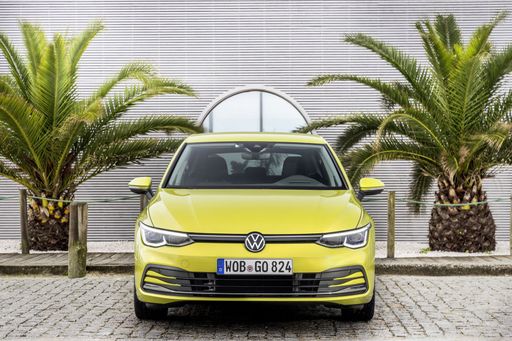 @ Volkswagen
@ Volkswagen
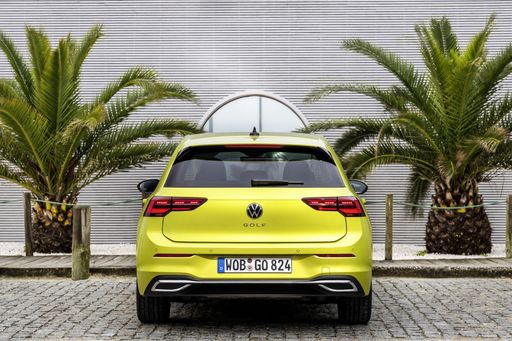 @ Volkswagen
@ Volkswagen
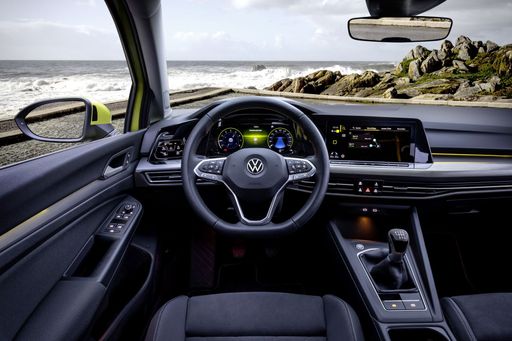 @ Volkswagen
@ Volkswagen
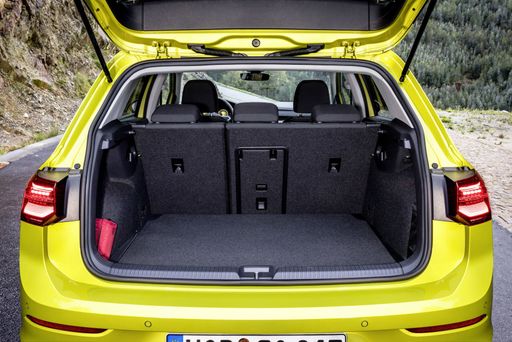 @ Volkswagen
@ Volkswagen
Dacia Bigster
The Bigster is poised to redefine the SUV segment with its bold design and spacious interior, catering to the needs of both families and adventure seekers alike. Emphasizing sustainability and practicality, this model reflects a modern approach to automotive engineering, making it a compelling choice for environmentally conscious drivers. With its striking presence on the road, the Bigster not only captures attention but also embodies a new era of versatile mobility.
details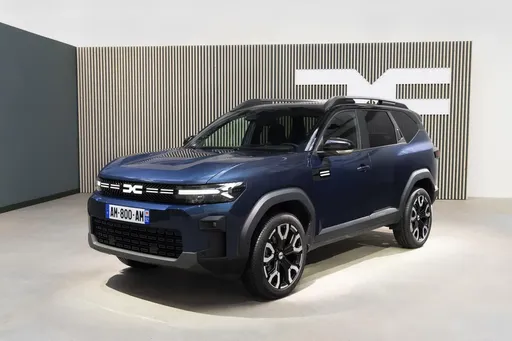 @ media.renault.at
@ media.renault.at
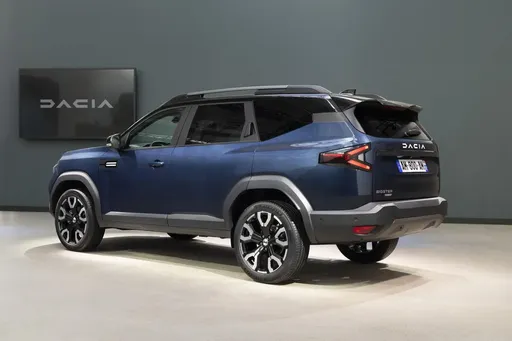 @ media.renault.at
@ media.renault.at
 @ media.renault.at
@ media.renault.at
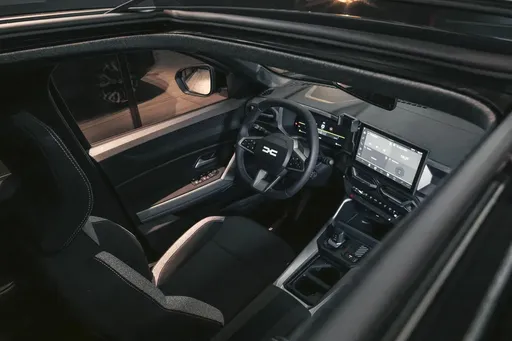 @ media.renault.at
@ media.renault.at
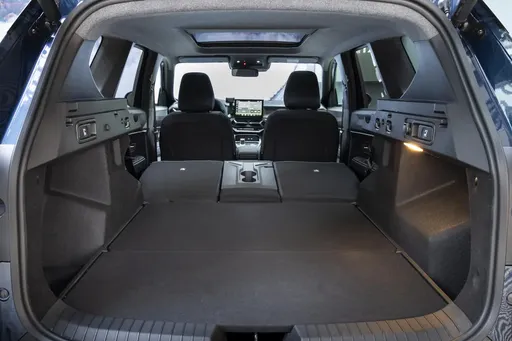 @ media.renault.at
@ media.renault.at

|

|
|
|
|
Costs and Consumption |
|
|---|---|
|
Price
25200 - 51600 £
|
Price
20600 - 26600 £
|
|
Consumption L/100km
0.3 - 8.2 L
|
Consumption L/100km
4.7 - 7.1 L
|
|
Consumption kWh/100km
-
|
Consumption kWh/100km
-
|
|
Electric Range
131 - 143 km
|
Electric Range
-
|
|
Battery Capacity
19.70 kWh
|
Battery Capacity
-
|
|
co2
6 - 186 g/km
|
co2
106 - 137 g/km
|
|
Fuel tank capacity
40 - 55 L
|
Fuel tank capacity
50 - 55 L
|
Dimensions and Body |
|
|---|---|
|
Body Type
Hatchback
|
Body Type
SUV
|
|
Seats
5
|
Seats
5
|
|
Doors
5
|
Doors
5
|
|
Curb weight
1307 - 1668 kg
|
Curb weight
1425 - 1547 kg
|
|
Trunk capacity
273 - 381 L
|
Trunk capacity
510 - 667 L
|
|
Length
4282 - 4296 mm
|
Length
4570 mm
|
|
Width
1789 mm
|
Width
1813 mm
|
|
Height
1454 - 1483 mm
|
Height
1705 mm
|
|
Max trunk capacity
1129 - 1237 L
|
Max trunk capacity
1813 - 1937 L
|
|
Payload
431 - 508 kg
|
Payload
383 - 467 kg
|
Engine and Performance |
|
|---|---|
|
Engine Type
Petrol MHEV, Petrol, Plugin Hybrid, Diesel
|
Engine Type
Petrol MHEV, Full Hybrid, LPG
|
|
Transmission
Automatic, Manuel
|
Transmission
Manuel, Automatic
|
|
Transmission Detail
Dual-Clutch Automatic, Manual Gearbox
|
Transmission Detail
Manual Gearbox, Automated Manual
|
|
Drive Type
Front-Wheel Drive, All-Wheel Drive
|
Drive Type
All-Wheel Drive, Front-Wheel Drive
|
|
Power HP
116 - 333 HP
|
Power HP
130 - 155 HP
|
|
Acceleration 0-100km/h
4.6 - 10.2 s
|
Acceleration 0-100km/h
9.7 - 11.2 s
|
|
Max Speed
202 - 270 km/h
|
Max Speed
180 km/h
|
|
Torque
220 - 420 Nm
|
Torque
230 Nm
|
|
Number of Cylinders
4
|
Number of Cylinders
3 - 4
|
|
Power kW
85 - 245 kW
|
Power kW
96 - 115 kW
|
|
Engine capacity
1498 - 1984 cm3
|
Engine capacity
1199 - 1799 cm3
|
General |
|
|---|---|
|
Model Year
2024 - 2025
|
Model Year
2025
|
|
CO2 Efficiency Class
D, B, F, G, C
|
CO2 Efficiency Class
E, D, C
|
|
Brand
VW
|
Brand
Dacia
|
What drivetrain options does the VW Golf have?
The VW Golf is available as Front-Wheel Drive or All-Wheel Drive.
The prices and data displayed are estimates based on German list prices and may vary by country. This information is not legally binding.
